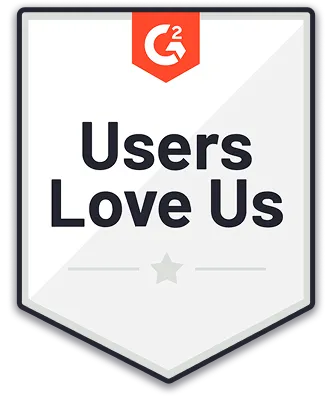
In this interview, Mohit Gupta of Bitwave shares his thoughts on the knowledge deficit among traditional accountants when it comes to accounting for digital assets, the value of a software solution like Bitwave that incorporates accounting expertise, and the limitations of Bitwave's competitors in the DeFi accounting space.
Mohit explains that while other platforms may connect wallets and APIs, they lack the depth of understanding and expertise necessary to fully cater to the accounting and tax needs of businesses and active traders in the crypto and NFT space. He also discusses his own experience with using spreadsheets and QuickBooks Online for DeFi accounting and the challenges he faced in scaling his accounting process.
Here are 5 key takeaways:
- There is a knowledge deficit among traditional accountants when it comes to accounting for digital assets, such as those in the DeFi space.
- Bitwave is a software solution that incorporates accounting expertise and provides a complete solution for DeFi accounting, including high-fidelity on-chain data and automatic organization and categorization of transactions.
- Bitwave's competitors lack the depth of understanding and expertise necessary to fully cater to the accounting and tax needs of businesses and active traders in the crypto and NFT space.
- Using spreadsheets and QuickBooks Online for DeFi accounting can be challenging and does not scale well for businesses or active traders.
- Bitwave is the best product on the market for DeFi accounting and tax because it provides the platform and expertise that clients need.
Read the full interview with Mohit below!
Bitwave: In your experience, is there typically a knowledge deficit for accountants who are accustomed to working in a traditional fashion and now find themselves with the added responsibility of accounting for digital assets?
Mohit: Yes, there is a fairly large knowledge deficit. In fact, many accountants have little to no understanding of prudent DeFi accounting practices. For example, I was recently asked by an accountant whether a wallet can hold multiple tokens. While there is a range of DeFi knowledge in the accounting field, many accountants are now essentially starting from zero when it comes to digital assets. Thankfully, there are a growing number of quality resources like Bitwave available that are making the DeFi accounting process easier for accountants and also helping to educate the community on the differences between traditional and DeFi accounting practices.
Bitwave: From a customer’s perspective, do you believe there is value in a software solution like ours that incorporates accounting expertise? Is this the right approach in your opinion?
Mohit: I can speak for myself and say that Bitwave is a huge step forward compared to the solutions I have used in the past. I have also come into contact with many other accountants that could benefit significantly from Bitwave. The truth is that while there are other platforms available for DeFi accounting and tax, those solutions are not backed by the same kind of industry expertise that Bitwave is.
I have familiarized myself with all of the other platforms available, and after speaking with the various leadership teams, it became apparent that the Bitwave team had a much deeper understanding of the crypto and NFT space. The other solutions seemed superficial or incomplete in comparison and did not have the level of expertise or scalability necessary to handle the accounting and tax needs of larger businesses or active traders.
Unlike other solutions, which simply connect APIs and leave all of the categorizing to you, Bitwave is a complete solution that provides high-fidelity on-chain data. With Bitwave, all of your DeFi transactions are automatically organized, categorized, and accounted for.
Bitwave: Do you believe that Bitwave’s competitors are relying on technical capabilities and aggregating data while ignoring the structure of the data and the specific solutions that would help to make informed customers’ accounting decisions?
Mohit: I think that Bitwave’s competitors are happy to configure their product in any manner that the client wants. But going back to the knowledge deficit we discussed earlier, they don’t have the expert DeFi knowledge necessary to configure the best possible solution on behalf of their clients. As a result, it is left to the client to provide expert-level DeFi accounting and tax knowledge and direct the onboarding process.
In most cases, however, clients are seeking a solution specifically because they don’t possess expertise in those areas. In my opinion, Bitwave is the best product in the market because it provides the platform and expertise that clients need. Bitwave’s competitors will have to develop and integrate expert DeFi accounting and tax knowledge in the future in order to remain in business. I don’t think that simply connecting wallets to a platform will be enough to attract clients in the future.
Bitwave: Prior to discovering Bitwave, were you primarily using spreadsheets for DeFi accounting? What other solutions were you using?
Mohit: I was primarily working with spreadsheets and QuickBooks Online. And quite honestly, that combination was just outmatched and unable to keep up with the amount of DeFi activity I was managing. It wasn’t even possible to enter the accurate number of DeFi transactions into QuickBooks Online. There was no way to scale with that solution. A manual accounting process like this just does not work for crypto traders or exchanges. Those type of businesses need to find a better solution.
Bitwave: We know that some companies start out trying to manage their DeFi accounting and tax processes internally. We also know that you have some experience with that strategy. Can you give us some insight into why companies start out building accounting and tax solutions internally? What are some of the pros and cons of this strategy, and why do so many of those companies end up switching to a software solution like Bitwave?
Mohit: There seems to be a bias amongst decision-makers that leads them to believe that building internally is more secure. In other instances, decision-makers think that it is faster to get an accounting and tax process up and running if it is built out internally. And finally, some decision-makers default to building internally when their company is growing quickly, and they fear that an external solution will not be able to keep pace. While there is some logic to building internally, I think that the positives only apply if the company has unlimited financial resources and vast human capital at its disposal.
Typically, members of the team that are directly responsible for executing the strategy recognize quite quickly that building internally is not practical or scalable. But, by this time, the decision has been made, and the process of building out a DeFi accounting and tax process internally has begun. With time, however, the impossibility of the task becomes apparent, and the inevitable transition to a software solution like Bitwave begins. The DeFi accounting and tax space are just so complex right now - trying to do everything internally just doesn’t work.
Bitwave: Speaking of complexity, several of our clients are multi-entity organizations. From an accounting perspective, what are some of the common pain points felt by multi-entity organizations? Are the accounting challenges different for those organizations than they might be for single-entity organizations?
Mohit: Yes, the accounting challenges faced by multi-entity organizations are different in several respects. For example, intercompany transfers can be especially difficult from an accounting perspective and have to be among the primary concerns for any multi-entity organization. Transfers from one company to another must be recorded. And tax implications must be taken into consideration anytime money is moved from one jurisdiction to another.
In the DeFi space, it is somewhat common to move intercompany funds from a UK-based company wallet, for example, to a different Cayman Islands-based company wallet. Some jurisdictions tax these types of transfers even when the receiving company is not yet profitable. Unlike Bitwave, however, many DeFi accounting and tax solutions do not have the functionality to handle that sort of transaction. When looking for an accounting and tax solution, it is important to ensure that the platform you choose can handle these more complex accounting scenarios.
Bitwave: When using Bitwave, all of the necessary accounting and tax information is accessible with the click of a button. When not using Bitwave, however, the data collection process involves much more manual work. Can you describe what the data collection process is like for someone who does not have access to Bitwave?
Mohit: The process of data collection and reconciliation is pretty cumbersome without the help of an accounting and tax software solution. Typically, the process involves downloading a bunch of spreadsheets and combing through all of the information. The manual process starts with downloading all of the wallet addresses and pulling crypto prices from a service like Coin Gecko or CoinMarketCap.
At that point, the crypto prices must be manually linked to each transaction, one at a time. Spreadsheet formulas can speed the process up a bit, but all of the information must be pulled from third-party sources and manually entered to begin with. Blockchain data can sometimes be incomplete or difficult to understand, which makes the work that much more time-consuming and frustrating. And it can easily become overwhelming when managing the books for a crypto trading business or crypto exchange. The amount of trading activity is just too high for a manual process. In my opinion, a service like Bitwave is absolutely essential for those types of businesses.
Bitwave: A lot of our clients choose Bitwave because of our flexibility. We do not tell them how to do their accounting. Instead, we provide information and best practices and let the client choose the best strategy for their business. Do you think flexibility sets Bitwave apart from its competitors and do you think our approach is the right one?
Mohit: Yes, I do think flexibility is important, especially when it comes to DeFi accounting. The crypto and NFT space is new and changing rapidly. It is very important to stay nimble. Without guidance from the government, there is nothing definite on the accounting side. Just about every decision is subjective and can be viewed differently depending on the type of business you have. At the same time, increased government regulation can change accounting practices at any time. Given the environment, I think it is naive to say that there is only one correct method of accounting for digital assets. I prefer Bitwave’s approach - provide the client with in-depth knowledge and information and allow them to determine the best approach.
Master DeFi Accounting with Bitwave
As the DeFi space continues to grow and evolve, it is essential for businesses to have access to a solution like Bitwave that can provide high-fidelity on-chain data, automatically categorize transactions, and more!
Ready to get started? Schedule a demo today.


Disclaimer: The information provided in this blog post is for general informational purposes only and should not be construed as tax, accounting, or financial advice. The content is not intended to address the specific needs of any individual or organization, and readers are encouraged to consult with a qualified tax, accounting, or financial professional before making any decisions based on the information provided. The author and the publisher of this blog post disclaim any liability, loss, or risk incurred as a consequence, directly or indirectly, of the use or application of any of the contents herein.







